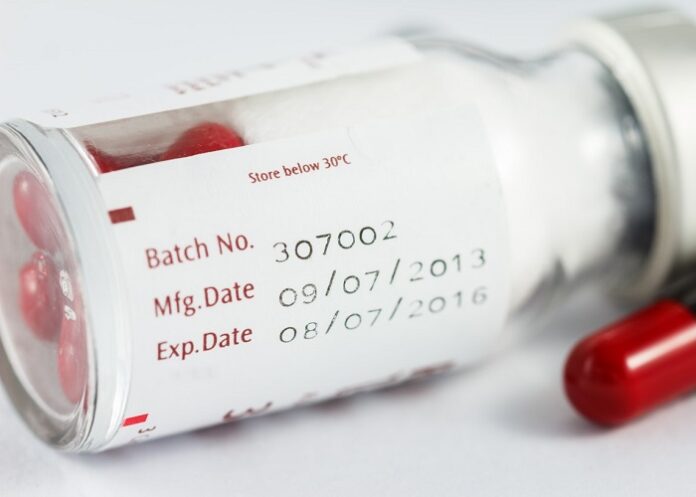Using expired medication and disposing of it unsafely comes with significant health, economic and environmental risks, warns pharmacy Professor Renier Coetzee, who is also vice-president of the Pharmaceutical Society of South Africa.
In The Conversation, she explains the risks posed by using expired medication, and how to safely dispose of old and surplus medicines.
Why it’s dangerous to take expired medication
Expiration dates for medicines are determined through stability testing, which involves assessing how long the drug remains safe and effective under various storage conditions. Manufacturers typically provide conservative estimates of expiration dates to ensure a medicine’s quality and safety.
Medications degrade over time, and may not work as intended once they reach and pass their expiry date. This is of particular concern with antibiotics: subtherapeutic doses (those which are too low to work properly and so do not fully treat the illness or infection) can contribute to antimicrobial resistance.
This makes infections harder to treat, which in turn, increases the risk of disease spread, severe illness and death.
Reduced potency in chronic disease medications like insulin or heart medication is also a worry, since this can have serious health consequences.
Some expired medications can break down into harmful compounds, one example being ciprofloxacin. This antibiotic is used mostly to treat infections in the urinary and upper and lower respiratory tracts. Studies have shown it can degrade into toxic by-products that may harm the kidneys (and be hazardous to the environment if not properly disposed of).
Exposure to heat, humidity and light can accelerate the breakdown of active ingredients. This applies to both scheduled medicines, prescribed by a doctor, and over-the-counter drugs.
Consider paracetamol, for instance. A year-old paracetamol tablet may not seem dangerous – but if it’s degraded, it could be less effective in treating pain or fever, leading to unintended consequences like delayed treatment or overuse in an attempt to achieve relief. If potency is reduced, users might take a higher dose than needed, increasing the risk of overdose or side effects.
It’s not just tablets and capsules that expire. Liquid medications, like cough syrups and eye drops, are particularly vulnerable to contamination once expired, as the preservatives they contain lose their potency. This increases the risk of bacterial growth, which could lead to infections.
While some expired medications may still retain potency, there is no guarantee of safety. Safe disposal is essential to prevent misuse and potential harm to both individuals and the environment.
Throwing expired or surplus medicine in the bin, or flushing it down the toilet, is strongly discouraged, not only by me but also by professional bodies like the Pharmaceutical Society of South Africa and the South African Pharmacy Council.
For starters, it’s bad for the environment. Medications discarded in household trash can leach active pharmaceutical ingredients into soil and groundwater, potentially contaminating sources of drinking water.
Flushing medicines down the sink or toilet introduces these substances directly into sewage systems. They often bypass conventional wastewater treatment processes; in Cape Town, for example, many wastewater facilities don’t perform tertiary treatments.
That allows poorly treated effluents, chemical compounds and pharmaceutical pollution to enter aquatic ecosystems.
Trace amounts of pharmaceuticals in water supplies pose risks to human health, too. Such low concentrations are generally considered to pose minimal direct health risks to humans, but there are concerns about their potential impact on antimicrobial resistance and endocrine disruption.
Endocrine disruption refers to the interference caused by certain chemicals which can mimic, block, or alter the human body’s natural hormones. The process can lead to various adverse health effects.
The safest disposal methods
The preferred method for disposing of unused or expired medications is through drug take-back programmes or authorised collection sites. These are designed to provide a safe, convenient and responsible means for people to dispose of unused or expired medications.
In South Africa, the South African Pharmacy Council mandates that only authorised personnel, like pharmacists or designated officials, may dispose of medicines, and they must produce a certificate of destruction to be stored for at least five years.
However, a study among healthcare professionals in the country revealed that only 23.5% participated in proper medicine destruction within their facilities. This, as well as similar research I conducted with some colleagues in Australia, indicates a need for improved education and practices regarding pharmaceutical waste disposal.
In other African countries, formalised medication take-back programmes are less common. Safe disposal methods must be established and promoted across the continent.
If more formal options are unavailable, you could mix medications with unappealing substances (like used coffee grounds or cat litter) and seal the mixture in a plastic bag before throwing it away. This can help to prevent accidental ingestion by children or animals. It also keeps medications away from toilets or drains, thereby lessening water pollution and harm to aquatic life.
However, this approach is less than ideal and should only be a last resort.
See more from MedicalBrief archives:
HPCSA issues fines for expired medicines and false representation
EC Health destroying tonnes of expired medicines

